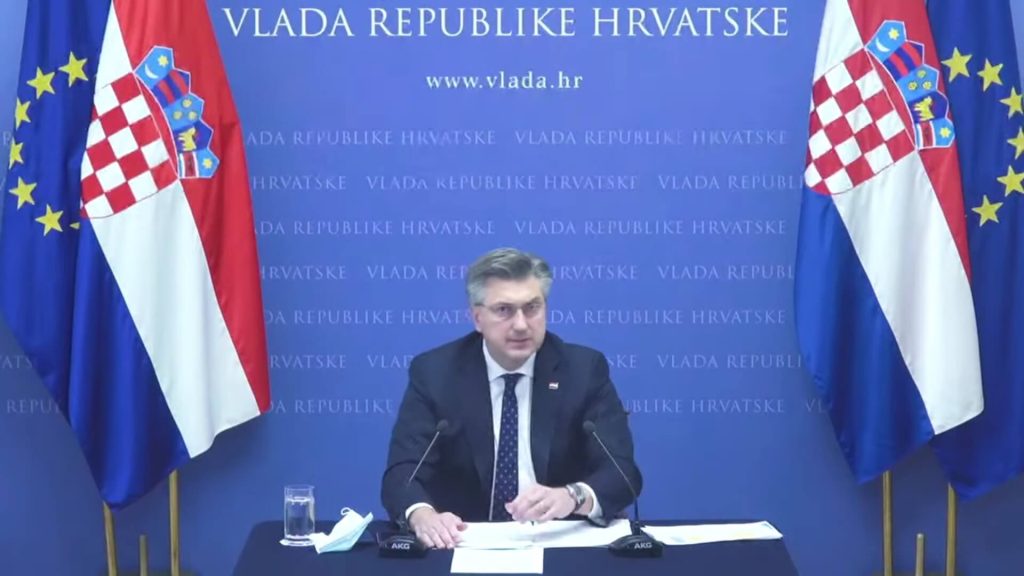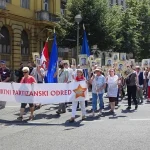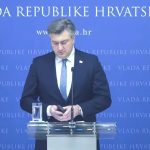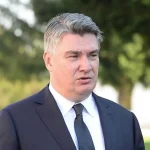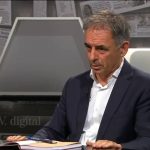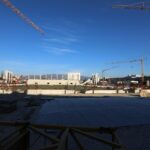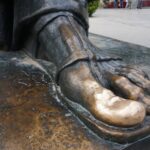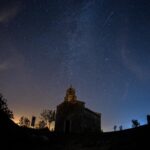“I am pleased to greet you on behalf of the government on the occasion of Antifascist Struggle Day here in Brezovica forest,” said Prime Minister Plenković in his speech at the central Antifascist Stuggle Day commemoration at Brezovica Memorial Park near Sisak, adding that the holiday was established in 1991 at the initiative of then president Franjo Tuđman.
The prime minister recalled that at the beginning of summer 1914 Hitler’s Germany had taken control of most of Europe and had begun its senseless and criminal policy in which about six million European Jews had been killed and that after the occupation of Yugoslavia, “the Quisling NDH regime” had been established in Croatia.
Croatia had largest resistance movement in Europe relative to its population
“In reality Croatia was divided into German and Italian occupation zones, while most of Dalmatia, Gorski Kotar and Primorje were annexed to Italy after NDH authorities ceded them to fascist Italy, and racial laws were passed against Jews, Roma and Serbs,” Plenković said.
He pointed out that 80 years ago about 70 fighters, mostly Croatian, had established the first Sisak Partisan resistance movement in Brezovica forest.
“Among them was a young Janko Bobetko, who would become a Croatian Army General and Chief of Staff of the Armed Forces in the 1990s,” the prime minister said.
He added that the Partisan movement in Croatia had 7,000 members, including many Croatian Serbs.
Plenković underscored that Croatia had had the largest resistance movement in Europe relative to its population.
“Last year we marked the 25th anniversary of the great victory in Operation Storm and the Homeland War, and then I said that we also mourned the victims of crimes committed by Croatia, which unfortunately happened, because a legitimate right to defence is not an excuse for crimes,” the prime minister said.
Totalitarian regime in Yugoslavia betrayed antifascists
He added that regardless of the merits of Croatian Partisans, that turbulent time should be viewed in all its complexity.
Plenković said he was thinking primarily of the post-war crimes of the JNA (Yugoslav People’s Army) near Bleiburg, Austria and the mass executions of disarmed soldiers and civilians along marches back to Yugoslavia, which he said was traumatic for many families, and which deepened the disastrous divisions in post-war Croatia.
He also underscored that the totalitarian regime in Yugoslavia had betrayed antifascists.
Here I’m thinking of post-war purges of political dissidents, such as the persecution of the Blessed Cardinal (Alojzije) Stepinac, who in his sermons publicly opposed the persecution of Serbs and Jews, and saved many of them from death, Plenković said.
Close divisions still present in society
Plenković said that the time had come for us Croatia a society to take a more sober view of the events of that time and to better evaluate the contribution of the Croatian antifascist resistance to Nazism.
“Only in that way will we close the divisions still present in our society and build the unity necessary to face the challenges ahead of us. Today we finally have a free democratic Croatia, a member of the EU and NATO, whose foundations are in the democratically expressed will of citizens and the victory of the defenders in the Homeland War, which also implies the value of antifascism,” Plenković stressed.
He said that after the pandemic and last year’s earthquakes, and in the context of increasingly rapid climate change, which would be by far the greatest challenge for the world in the future, Croatia needed unity and to look to the future more than ever.
“Therefore, it is up to all of us to rise to the task that awaits us,” Plenković said.
For more about politics in Croatia, follow TCN’s dedicated page.

